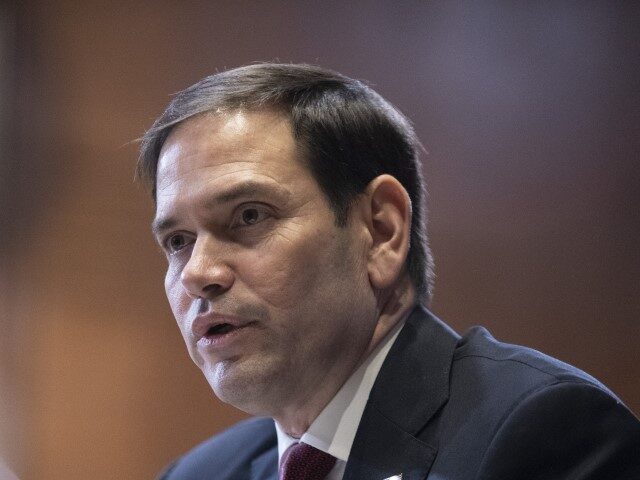Sen. Marco Rubio (R-FL) dismissed comparisons made between the Paycheck Protection Program (PPP) and President Biden’s plan to forgive $10,000 to $20,000 in student loan debt, explaining that it is “not even the same thing” in principle, as student loan forgiveness “basically tells 85 percent of Americans that they have to pay off the loans of 15 percent” of Americans with their tax dollars.
“It’s not even the same thing. So a PPP loan didn’t go to the business. Like, the business didn’t make money off it. The PPP loans were designed to pay their workers,” he said during an interview with NBC 6’s Jackie Nespral, walking her through the limitations of the PPP loans, which were to be used only to pay workers or rent on a building so the business “wouldn’t get evicted.”
“That’s the other thing you have to remember about PPP. The government was telling businesses, you’re not allowed to open. You’re not allowed to work,” he said, explaining that it came down to the government intervening through unemployment or through the PPP program.
“So that’s the difference,” he said, clarifying that he is not opposed to student loan reforms. However, the way Biden is approaching it is simply not fair, he explained.
“I’m not against it [student loan reforms]. …I had student loans. I would have never paid them off had I not been able to write a book. I’d still be paying student loans,” he said, elaborating that he is “against a loan forgiveness that basically tells 85 percent of Americans that they have to pay off the loans of 15 percent of Americans, just pay them off with their tax dollars,” he said, listing how it is unfair to several groups of people:
So if you’re a plumber, or you’re an electrician, and you borrow money from the bank to start a business and hire people, you don’t get your loan forgiven. But if you go to a university or college, it’s too expensive to begin with. Maybe you didn’t graduate and we have to pay off the loan that you took out? What about the people that paid off their loans? What about the students that are taking out loans today? Right now someone’s taking out a loan–that loan is not going to be forgiven. So why one group of people, not everyone else?
A better approach, Rubio said, is wiping out interest rates on loans and “just pay the flat fee, so they don’t compound,” he said, explaining that money does not need to be made on student loans.
“What was the fee that we need to break even? That would help a lot of people lower the burden because what happens with these loans is they start compounding the interest rates,” he said, adding that the burden needs to shift to colleges and universities as well.
Colleges and universities, he said, should be required to tell borrowers “how much people make when they graduate from our school with this degree” so they can make a more informed decision “about whether you want to borrow $50,000 to graduate in something that doesn’t lead to a job.”
“These are bipartisan reforms that would help reform the system, and they would help people from the past and moving forward. But loan forgiveness is basically 85 percent of Americans paying the loans of 15 percent,” he added.

COMMENTS
Please let us know if you're having issues with commenting.